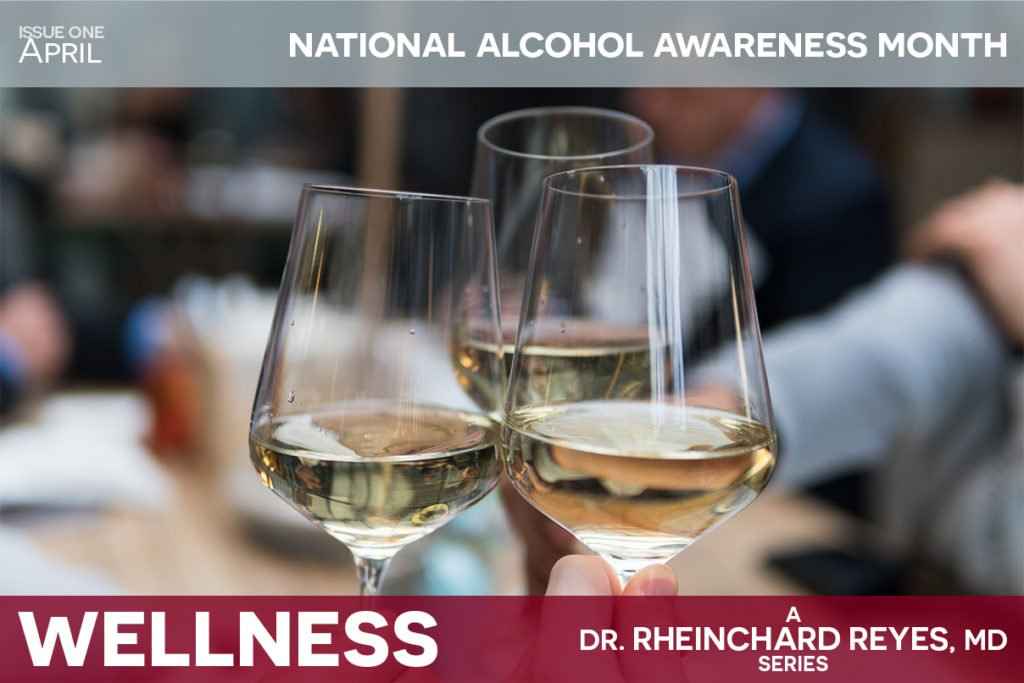Alcohol Awareness Month began as far back as 1987. It is sponsored by the National Council on Alcoholism and Drug Dependence, Inc. (NCADD). And so, every April of every year since then, this organization has sought to raise the awareness of the plight that alcoholism represents for our society at large.
Some people in the world of science and medicine have gone so far as suggesting that alcohol could be placed all alone in a category of itself. The niggling and far-reaching effects of alcohol abuse have had negative consequences that far outdo any other drug, they say. It should, therefore, be located above and given special attention over other Class A drugs.
ALCOHOLISM AND ALCOHOL USE DISORDER
Defining a few useful terms is going to be the first point of order.
Alcoholism is a disease linked to the excessive use of alcohol, for any reason, impinging on someone’s day to day capabilities, namely their physical and mental health.
Now, Alcohol Use Disorder or AUD is the medical term for a disorder that produces physical and psychological dependence on alcohol intake that defines individuals whose problem drinking has become severe.
- problems controlling drinking
- worrying about when your next drink might be
- continuing the use of alcohol even when it causes obvious problems
- having to drink higher doses to get the same effect
- having withdrawal symptoms after stopping drinking
CHILLING FACTS AND FIGURES
Let’s look at some of the brutal facts and real dangers that alcohol misuse has brought, as reported by the 2015 National Survey on Drug Use and Health (NSDUH).
Prevalence: According to this study, 86% of people ages 18 or older report having drunk alcohol at some point in their life; 70 per cent have said that they did so in the last year, while 56 per cent declared that they had a drink last month. It is, therefore, safe to say that alcohol consumption in the United States is high, even very high.
Youth: 623,000 young adults aged 12 and 17 had AUD. Here the gender gap is turned around, being slightly higher for girls than for boys (325k vs 298k)
- Heart failure and disease
- Brain shrinkage and lesions
- Anemia
- Dementia
- Stroke
- Liver damage and multiple associated diseases
- Nerve damage
- Muscle weakness
- Electrolyte deficiency
- Insomnia
- Tremors
- Depression
- Pancreatitis
- Lung disease
- Loss of sexual desire & impotence
- Bone loss
- Skin disorders
- Cancer, multiple types
- Fetal alcohol syndrome
- Death
SOME WELCOME EFFECTS
The recommended drinking parameters according to the National Institute on Alcohol Abuse and Alcoholism are…
Women – 1 drink per day
Men – 2 drinks per day
If consumed within these parameters, welcome long-term effects of alcohol are also worth mentioning. For all of these conditions, alcohol consumption reduces the risk of…
- Coronary heart disease
- Blood clot
- Gallstones
- Kidney stones
- Rheumatoid arthritis
- Osteoporosis, especially in women, due to an increase in their bone density
Sources:
https://www.quitalcohol.com/recovery/april-alcohol-awareness-month.html
https://www.healthyplace.com/addictions/alcoholism/what-is-alcoholism-definition-of-alcoholism
https://www.healthyplace.com/addictions/alcoholism/short-term-long-term-effects-of-alcohol


